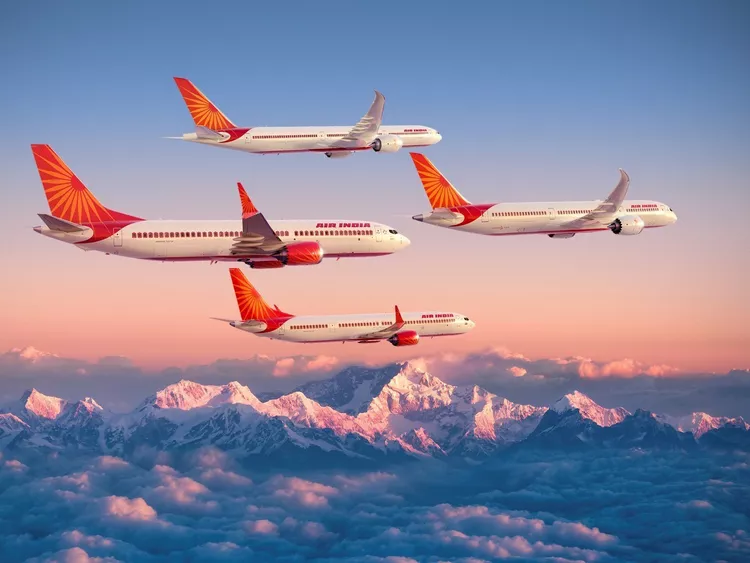
US President Joe Biden announced on Tuesday that Tata Group-owned Air India has agreed to purchase 220 Boeing jets valued at $34 billion, with an option for an additional 70 jets, totaling 290 airplanes for a total of $45.9 billion at list price. The initial order includes 190 Boeing 737 MAXs, 20 Boeing 787s, and 10 Boeing 777Xs.
Air India has also agreed to purchase 250 planes from France-based Airbus, including 210 single-aisle A320neos and 40 widebody A350s.
Air India is expected to spend a whopping $100 billion on Boeing and Airbus to acquire the aircrafts.
The order aims to both modernise and expand the Air India's fleet, with the objective of creating a larger and premium full-service carrier that will cater to the growing travel demand in the region.
Deliveries from Airbus are set to commence with the first A350-900 arriving by late 2023. The Boeing deal, first reported in December, was not announced officially by the Biden administration until Tuesday, following last month’s inaugural launch of the U.S.-India initiative on Critical and Emerging Technology (iCET) which expands the bilateral cooperation between the governments, businesses, and universities of the two countries.
“This purchase will support over one million American jobs across 44 states, and many will not require a four-year college degree,” President Biden said. “This announcement also reflects the strength of the U.S.-India economic partnership. Together with Prime Minister Modi, I look forward to deepening our partnership even further as we continue to confront shared global challenges—creating a more secure and prosperous future for all of our citizens.”
News of the Air India order caused Boeing's share price to rise by 2% on Tuesday. The Boeing purchase is the United States plane manufacturer’s third-largest dollar value sale of all time, and its second-biggest of all time in terms of quantity.
The massive order is considered an indication of Air India’s strategic plan to recapture lost prestige and market share that it ceded in recent years to competitors with younger planes.
In 2022, Air India had just 8.7% of domestic market share, a record low. Tata Group’s stated goal is to capture nearly a third of the domestic aviation market.
Over the next 15 years, it is estimated India will need more than 2,000 aircraft to meet its growing demand for air travel.
Air India has also agreed to purchase 250 planes from France-based Airbus, including 210 single-aisle A320neos and 40 widebody A350s.
Air India is expected to spend a whopping $100 billion on Boeing and Airbus to acquire the aircrafts.
The order aims to both modernise and expand the Air India's fleet, with the objective of creating a larger and premium full-service carrier that will cater to the growing travel demand in the region.
Deliveries from Airbus are set to commence with the first A350-900 arriving by late 2023. The Boeing deal, first reported in December, was not announced officially by the Biden administration until Tuesday, following last month’s inaugural launch of the U.S.-India initiative on Critical and Emerging Technology (iCET) which expands the bilateral cooperation between the governments, businesses, and universities of the two countries.
“This purchase will support over one million American jobs across 44 states, and many will not require a four-year college degree,” President Biden said. “This announcement also reflects the strength of the U.S.-India economic partnership. Together with Prime Minister Modi, I look forward to deepening our partnership even further as we continue to confront shared global challenges—creating a more secure and prosperous future for all of our citizens.”
News of the Air India order caused Boeing's share price to rise by 2% on Tuesday. The Boeing purchase is the United States plane manufacturer’s third-largest dollar value sale of all time, and its second-biggest of all time in terms of quantity.
The massive order is considered an indication of Air India’s strategic plan to recapture lost prestige and market share that it ceded in recent years to competitors with younger planes.
In 2022, Air India had just 8.7% of domestic market share, a record low. Tata Group’s stated goal is to capture nearly a third of the domestic aviation market.
Over the next 15 years, it is estimated India will need more than 2,000 aircraft to meet its growing demand for air travel.

